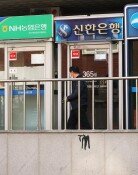China, Russia Name New North Envoys
China, Russia Name New North Envoys
Posted August. 01, 2006 03:02,
Russia and China are reportedly changing their ambassadors to North Korea one after another in the second half of this year.
According to diplomatic sources, the Chinese government has already appointed Liu Xiaoming (50), former Deputy Director-General of the Ministry of Foreign Affairs, as its new ambassador to North Korea. In the meantime, the Russian government has also appointed Valery Sukhinin (56), Minister- Counselor of the Russian Embassy in Seoul as its new ambassador to the North.
Although Liu is expected to assume his post as soon as diplomatic procedures are finished, Valery, who is in Seoul at the moment, will reportedly visit Moscow this month and proceed to his new post in Pyongyang at the end of the year.
The Chinese governments decision to appoint Liu, who is in his 50s and has no experience on Korean peninsula issues, as ambassador to North Korea is unprecedented.
Moreover, the newly appointed Liu is an expert on the U.S. who not only earned a masters degree in international relations at the Fletcher School at Tufts University, but also served as a ministers assignee to the Chinese Embassy in the United States between 1998 and 2001. Liu then served as ambassador to Egypt and as the assistant governor of Gansu Province.
There are many speculations over Chinas decision to send a relatively young ambassador educated in the U.S. to North Korea. Some analysts believe it signifies a change in the traditional relations between North Korea as illustrated at Chinas support of the UN Security Councils resolution to sanction North Korea. They argue that this heralds Chinas changed attitude of emphasizing bilateral ties between China and the U.S. and international relations even in dealing with North Korea.
On the other hand, Russia chose Valery as following precedent. Valery has been exclusively dealing with Korean peninsula issues over the last 30 years. He studied the Korean language at Kim Il Sung University in Pyongyang. He has been working in the two Koreas even since he served as a diplomat in North Korea in 1974.
He has frequently worked as an interpreter during the Korea-Russia summits as his Korean is most fluent Korean speaker in the Ministry of Foreign Affairs. He has served as minister-counselor at the Russian Embassy in Seoul and Pyongyang. He also acted as a working-level delegate at the third round of six-party talks when he served as the deputy-director of the Asia Division І in the Ministry of Foreign Affairs.
kimkihy@donga.com



![‘건강 지킴이’ 당근, 효능 높이는 섭취법[정세연의 음식처방]](https://dimg.donga.com/c/138/175/90/1/wps/NEWS/IMAGE/2026/01/18/133181291.1.jpg)
![“한동훈, 정치생명 걸고 무소속 출마해 평가받는 것 고려할만”[정치를 부탁해]](https://dimg.donga.com/c/138/175/90/1/wps/NEWS/IMAGE/2026/01/19/133186982.1.jpg)


